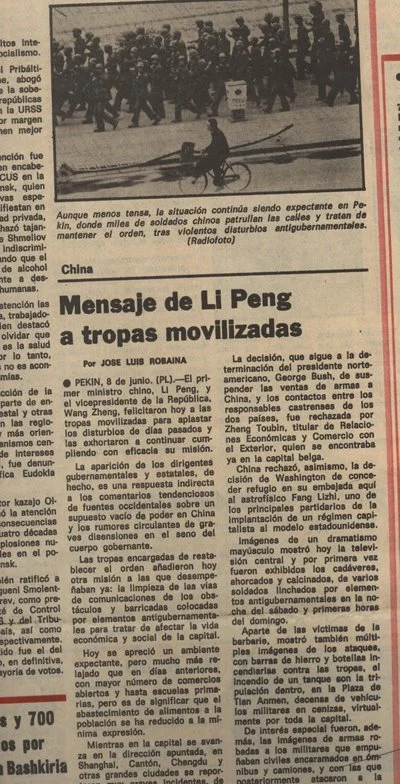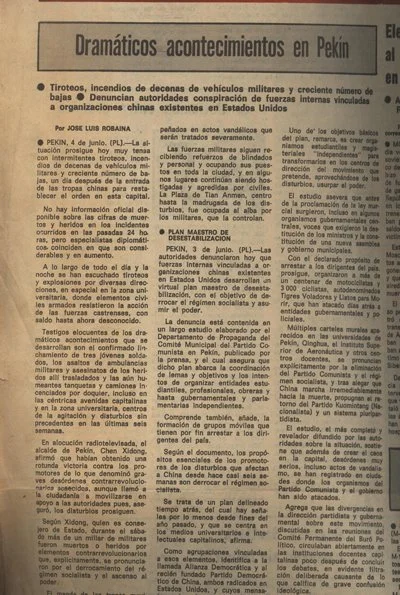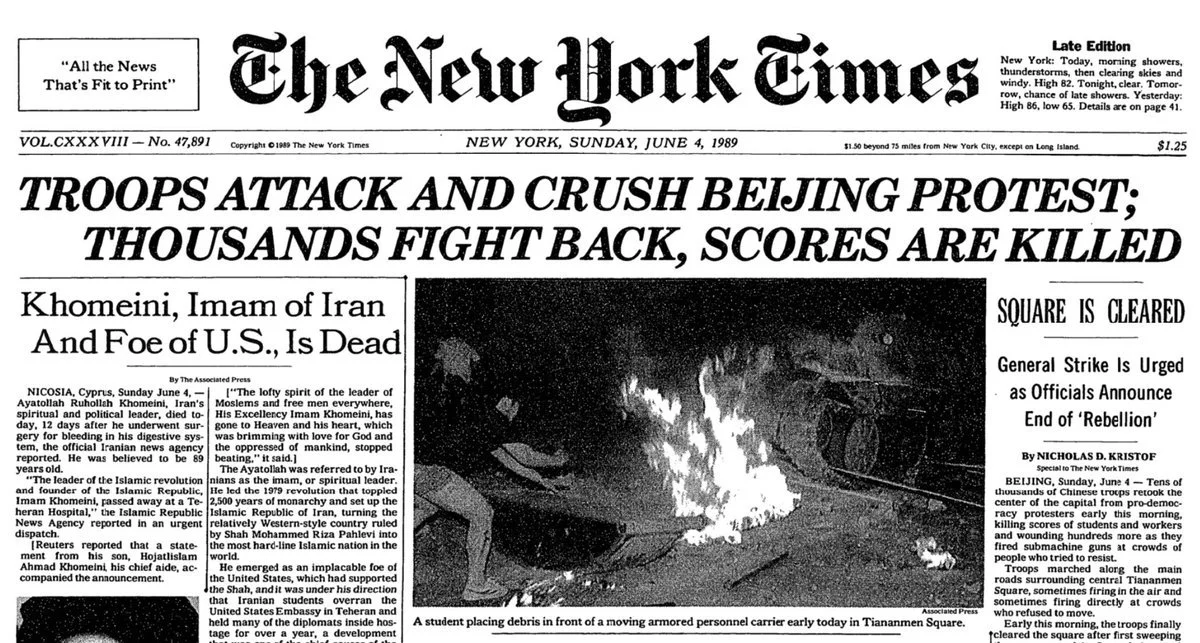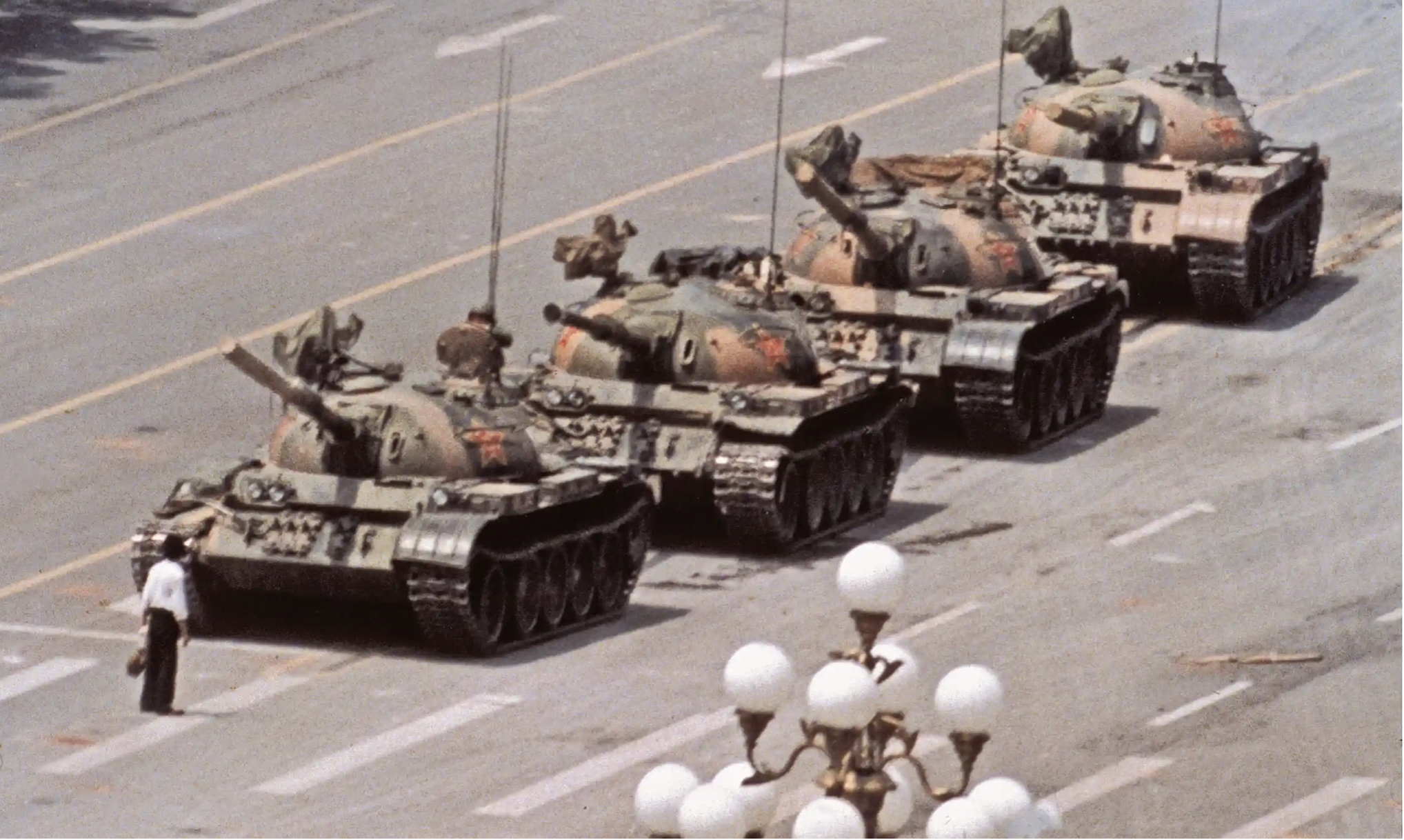FIDEL CASTRO SUPPORTED THE TIANANMEN SQUARE MASSACRE
Democrats in China must know that in Cuba, voices like that of José Daniel Ferrer García, leader of the Patriotic Union of Cuba and currently a Prisoner of Conscience, stand in solidarity with the ideals of Tiananmen Square to build a free, democratic, and inclusive nation.
On a day like today, three years ago, we connected in a livestream broadcast with José Daniel Ferrer García, along with members of UNPACU Carlos Amel Oliva and Ernesto Oliva, to remember the significance of those weeks of massive protests in April, May and June of 1989.
We paid tribute to the significance of the pro-democracy movement and condemned the brutal repression by the Chinese Communist Party. We drew parallels with the demands of the Cuban people for democracy and referred to how such events could unleash in Cuba, a year prior to the July 11 pro-democracy protests.
“Those inside and outside who fight for freedom: There are no obstacles, no Russian tanks, that can stop us. There is nothing that will paralyze us. We will end up taking to the streets of Cuba. Tiananmen or no Tiananmen. With tanks or without tanks. In whatever way, with firmness and courage we are going to end communism in Cuba. We will democratize our nation. We are going to turn this terrible page that is already more than 6 decades old and we are going to throw communism to the dustbin of history.”
José Daniel Ferrer García, Cuban Prisoner of Conscience on the occasion of the 31st anniversary of the Tiananmen Square Massacre.. June 4. 2020.
June 4, 2023, marks the 34th anniversary of the Tiananmen Square massacre. This atrocity crime, orchestrated by Deng Xiaoping and the 6 Elders of the Chinese Communist Party, executed by Premier Li Peng, violently crushed pro-democracy protests in Beijing and Tiananmen Square.
What initially began as a spontaneous memorial for Hu Yaobang, a reformist member of the Communist Party, transformed into the largest and most influential pro-democracy demonstration of the 20th century. The rebellion saw the participation of nearly 100 million individuals, demanding freedom and justice. However, the brutal crackdown resulted in thousands of lives lost, political persecution, and countless incarcerations of those involved in the pro-democracy movement.
During those days, Qian Qichen, the Chinese Foreign Minister, had scheduled a visit to several Latin American nations, set to commence on May 31, 1989. However, by the time Qian arrived in Quito, Ecuador on the morning of June 4, the Chinese army tanks had already crushed the aspirations of the Chinese people to live in a democratic society. Mexico and many Latin American countries refused to receive the representative of the Chinese regime. Rejected by the rest of the hemisphere, Qian arrived in Cuba on June 7 for what turned into a four-day visit. Fidel Castro welcomed him with grandeur, hosting a lavish meal in his honor and engaging in extensive discussions. During their conversation, Fidel Castro expressed his full support for the Chinese regime’s order to use violence against the people, stating that the Cuban regime "completely supported the Chinese government."
The Official Newspaper of the Cuban Communist Party parroting the CCP propaganda justifying the Tiananmen Square Massacre on June 4. 1989.
A year later, in an interview conducted by Ted Turner, then CEO of CNN, Fidel Castro continued to maintain his position of supporting the Tiananmen Square massacre. He stated that it was "regrettable and it hurts us all that this type of problem occurred, but I think the Chinese were very inexperienced in dealing with this kind of situation and had no alternative." Although the Cuban dictator modified his response, he expressed it similarly to how he had justified the Soviet invasion of Czechoslovakia in August 1968, stating that they "had no alternative."
One of the most iconic photos of the 20th Century, “Tank Man.” A brave Chinese citizen stands in front of a tank column in Beijing on June 5, 1989. Photo taken by Jeff Widener. Tank Man stands as a global symbol of defiance and will power of the individual vs oppression.
Fidel Castro, a seasoned and astute dictator, recognized this as an ideal moment to gain favor with the Chinese Communist Party. Disregarding the crimes committed, he sought to establish a foundation for support from China at a time when the communist world was collapsing, and Soviet Union's backing for his dictatorial regime was diminishing. While the Chinese people endured the greatest massacre of the 20th century, for Castro and his dictatorship, it marked the opportunity to restore relations between China and Cuba, which had faced ruptures since 1966 due to international alliances during the Cold War, where China and the USSR were rivals. Gone were the days when Castro referred to Deng Xiaoping as a "senile idiot and a caricature of Hitler."
Those fighting for democracy in China should be a ware that the Cuban dictatorship has been an accomplice and legitimizer of the worst crimes committed by the Chinese Communist Party. Today, China supports the Cuban regime, providing it with technology to censor websites and social media, and enabling the suppression of internet access for activists, thus stifling spaces for coordinating actions and mobilizing for democratic change. Meanwhile, the Cuban regime, leveraging its extensive diplomatic influence, rallied support from 69 countries on October 21, 2021, to commend China's human rights record in Hong Kong, Xinjiang, and Tibet, despite overwhelming evidence of gross human rights violations and atrocities committed by the Chinese Communist Party.
It is imperative for democratic advocates to acknowledge the complicity of the Cuban dictatorship and its role in legitimizing the heinous acts perpetrated by the Chinese Communist Party. The alliance between these regimes poses a grave threat to freedom, democracy, and human rights. Only by exposing and opposing such alliances can we work towards a future where these ideals flourish, and the sacrifices made in Tiananmen Square are honored.
Bibliography:
Qian Quichen, WaiJiao Shiji (Ten Episodes in My Diplomatic Career) (Hong Kong: San Lian Ltd, 2004).
Liang Zhang, “The Tiananmen Papers,” (Public Affairs, New York), 2001.
Michael Lima & Sarah Teich, “Cuba’s Authoritarian Alliances are a Threat to Democracy,” The Hub * Macdonald Laurier Institute, July 14. 2022, https://macdonaldlaurier.ca/cubas-authoritarian-alliances-are-a-threat-to-democracy-sarah-teich-michael-lima-in-the-hub/






